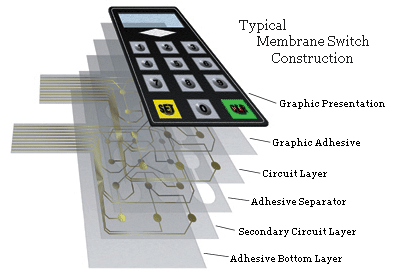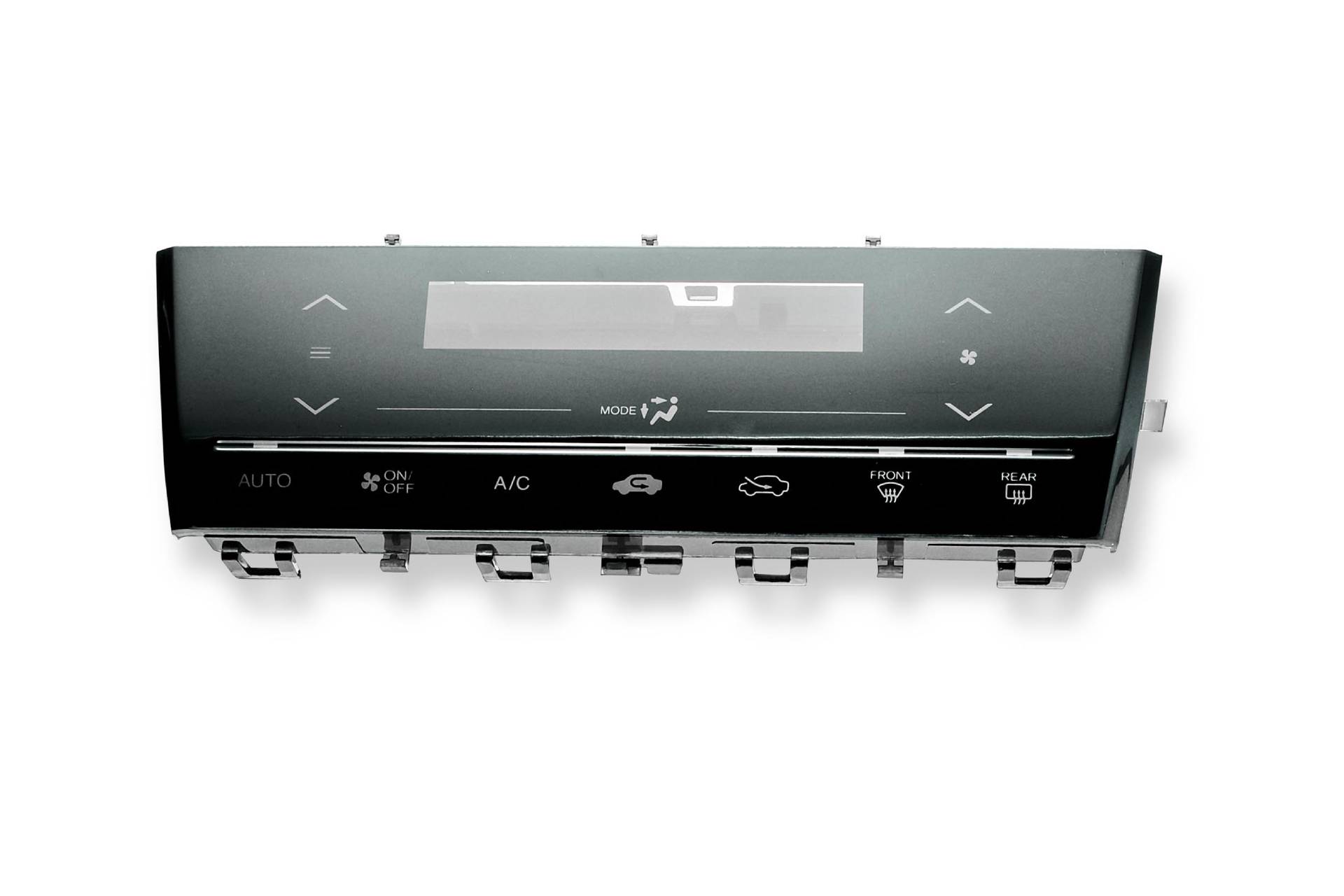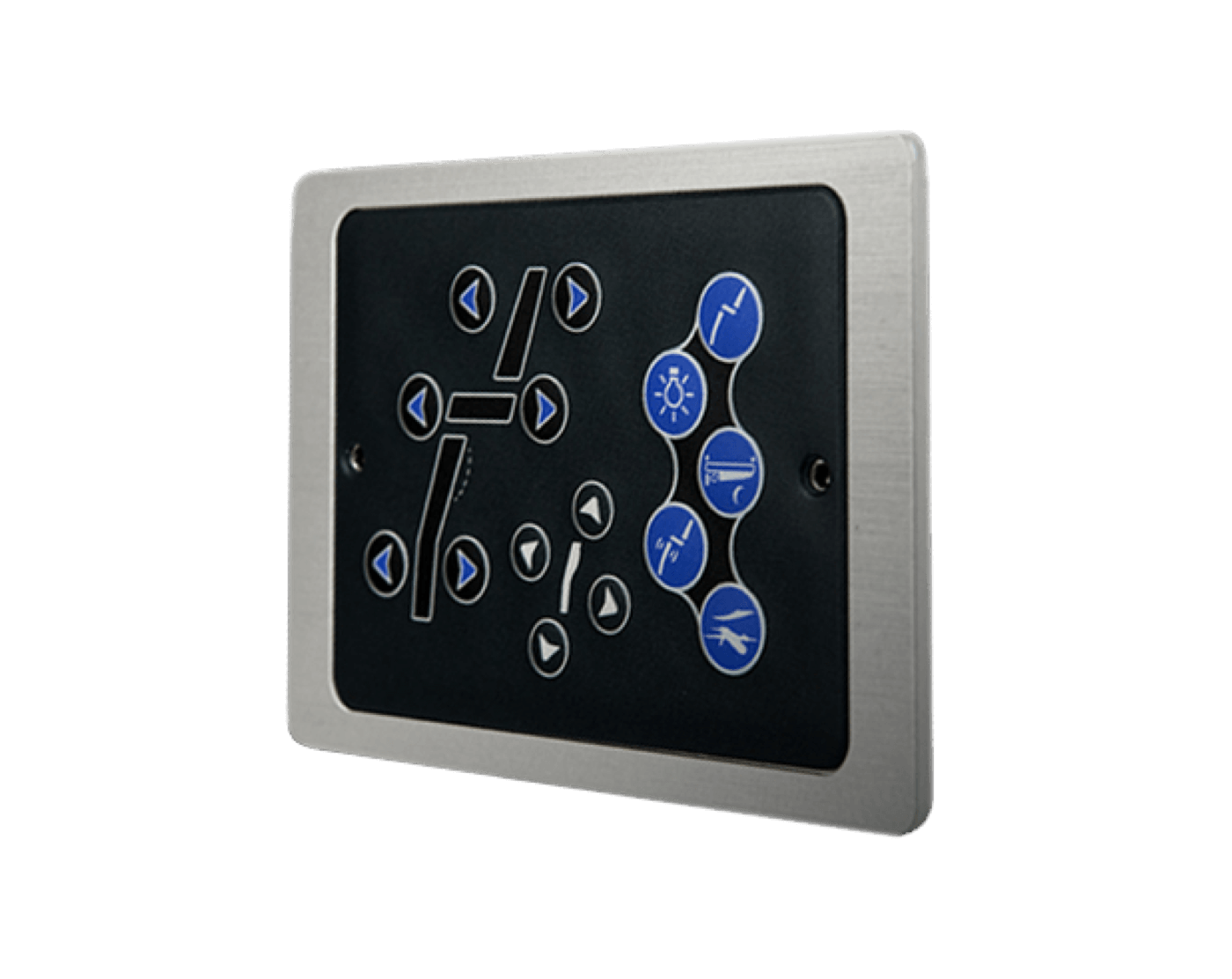Everything About Membrane Switch Over: Recognizing Its Style and Performance
When you think concerning the control interfaces in modern-day devices, membrane layer buttons usually come to mind. Let's explore what sets membrane switches over apart from other control systems.
What Are Membrane Switches?

Membrane buttons can likewise be tailored pertaining to shape, dimension, and graphics, enabling makers to develop special user interfaces tailored to particular items. On the whole, membrane buttons play a significant role in boosting user experience throughout a wide selection of applications.
Just How Membrane Changes Work
When you press a secret on a membrane layer switch, it turns on a simple yet effective system. membrane switch manufacturer. The top layer, usually made of flexible product, presses down onto a conductive layer beneath it.
You'll notice that the responsive responses differs based upon the button layout, supplying either a soft click or a more obvious response. As soon as you launch the trick, the membrane layer go back to its original placement, resuming the circuit and quiting the signal. This procedure occurs almost instantaneously, ensuring a receptive individual experience.
Membrane layer buttons are popular due to their durability and resistance to dirt and dampness, making them excellent for various applications, from house appliances to medical tools. Understanding this operation helps you value their widespread usage.
Key Parts of Membrane Switches
Understanding the crucial parts of membrane layer switches is fundamental for comprehending their functionality and layout. The safety layer guards versus ecological elements and use, expanding the button's life-span. By understanding these parts, you'll acquire insight into exactly how membrane layer switches over operate and their importance in different applications.
Products Utilized in Membrane Layer Switch Over Design
The efficiency and toughness of membrane layer changes heavily depend upon the products made use of in their design. You typically run into polyester and polycarbonate as primary substrates due to their exceptional toughness and adaptability. These products withstand scratches and chemicals, making them suitable for requiring settings.
The conductive layers often make use of silver or carbon, selected for their integrity and conductivity. membrane switch manufacturer. Silver provides superior efficiency, while carbon is a cost-effective option. For the overlay, you could take into consideration a matte or shiny finish, depending upon your visual demands and user experience
Adhesives play an essential duty also; they bond layers securely and assure long life. Make specific to select adhesives that stand up to environmental variables like temperature and humidity. Don't neglect the relevance of a good printing technique for graphics, as it improves both capability and aesthetic charm. Selecting the appropriate materials will guarantee your membrane layer switch stands the test of time.
Design Considerations for Membrane Layer Switches
While designing membrane switches, it's important to take right into account numerous variables that influence their performance and user experience. Start by concentrating on the layout and switch size; make certain they're instinctive and easy to browse.
Do not ignore the graphic layout; clear labeling and shade comparison are substantial for exposure. Verify your layout fits ecological variables, like moisture or temperature variants, which could influence performance. Ultimately, bear in mind the importance of screening models with genuine users to collect responses and make necessary modifications. This iterative process aids you improve the design, validating it fulfills both practical and visual requirements properly. By very carefully thinking about these components, you'll create a membrane layer switch that enhances use and fulfillment.
Applications of Membrane Layer Switches
Membrane layer switches are functional elements found in numerous applications, from commercial equipment to consumer electronic devices. You'll see their effect in makers that need sturdy user interfaces and in tools that take advantage of sleek styles. Recognizing these applications aids you value the capability and functionality of membrane my explanation buttons in everyday modern technology.
Industrial Equipment Usage
When you're looking to enhance the performance of industrial devices, membrane layer switches supply a trustworthy service that incorporates durability with straightforward style. These buttons are ideal for rough environments, supplying resistance to dirt, wetness, and chemicals. Welcome membrane buttons to streamline your operations and improve overall performance.
Consumer Electronic Devices Combination
In the domain of consumer electronic devices, membrane layer buttons play a necessary duty in improving customer communication and gadget capability. You'll find them in devices like microwaves, remotes, and video gaming consoles, providing a smooth means to communicate with innovation. Their smooth design enables simple assimilation into numerous products, making controls intuitive and easy to use. With their capacity to integrate graphics and backlighting, you can delight in a modern aesthetic that complements the tool's overall appearance. Membrane buttons additionally guarantee longevity and resistance to dust and moisture, extending the life-span of your electronics. By picking membrane layer switches, you boost not just the performance yet additionally the design of your tools, making daily interactions smooth and satisfying.
Advantages and Downsides of Membrane Layer Switches
While membrane Check Out Your URL switches use a variety of benefits, they also come with some downsides that you should consider. One significant benefit is their small design, making them perfect for space-constrained applications. They're additionally cost-efficient, providing a durable service with a low manufacturing expense. In addition, their seamless surface is very easy to tidy, improving hygiene in environments like health centers.

Nevertheless, there are downsides. Membrane buttons can have a much shorter lifespan compared to mechanical switches, specifically under hefty usage. They can likewise be less responsive, which may impact individual feedback throughout operation. Furthermore, if harmed, repairing them can be challenging and usually needs complete replacement. Ultimately, their level of sensitivity to extreme temperatures and ecological problems may restrict their performance in certain settings. Stabilizing these pros and cons will aid you identify if membrane layer switches are the right suitable for your task.
Frequently Asked Concerns
How Much Time Do Membrane Switches Typically Last?
Membrane layer switches over usually last in between 5 to 10 years, depending on usage and ecological conditions. You'll wish to review aspects like wear, direct exposure to moisture, and temperature variations to determine their durability properly.
Can Membrane Layer Switches Be Personalized for Details Styles?
Yes, you can customize membrane layer switches to fit details designs (membrane switch manufacturer). You'll have the freedom to choose shades, shapes, and layouts that match your job's needs, ensuring they blend flawlessly with your investigate this site overall visual
What Is the Expense Variety for Membrane Change Manufacturing?
The expense array for membrane switch production normally drops between $1 and $10 per device, relying on elements like style intricacy, quantity, and products. You can obtain quotes from manufacturers to find the most effective alternative.

Are Membrane Switches Over Water Resistant or Resistant?
Membrane switches can be created to be water resistant or immune, depending upon products utilized and construction approaches. If you require them for damp settings, guarantee you define those needs throughout the style procedure.
How Do Membrane Switches Over Compare to Traditional Switches?
Membrane layer buttons are typically thinner and a lot more flexible than standard switches, providing a sleek design. They're often simpler to clean and integrate, yet may not give the tactile comments you're made use of to with mechanical alternatives.
Conclusion
